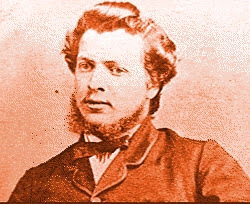http://www.ainc-inac.gc.ca/ai/mr/nr/m-a2009/nr000000335-eng.asp
Ottawa, Ontario (May 25, 2009) - The following statement was released by the Honourable Chuck Strahl, Minister of Indian Affairs and Northern Development and Federal Interlocutor for Métis and Non-Status Indians, on Bill C-8:
“I am extremely pleased that this piece of legislation, of great importance to First Nations women and children, was not thrown aside yesterday by a Hoist Motion from the Official Opposition. Bill C-8 will now get the discussion it deserves in the House of Commons.
“There is a lot of misinformation spread about Bill C-8 by those who seek to block this reform, which is long overdue.
“The truth is that Bill C-8, the proposed Family Homes on Reserves and Matrimonial Interests or Rights Act, provides First Nations communities the very thing they are seeking: the mechanism to enact their own culturally relevant laws without any involvement by the federal government.
“The Bill also ensures that, in the interim, as communities develop their own laws, families will be immediately protected from the legal void that has existed for too long.
“More than 100 consultation sessions were held to give organizations such as the Assembly of First Nations and the Native Women's Association of Canada ample opportunity to provide input and feedback. Numerous studies have been undertaken on the subject of matrimonial real property rights, and committees from both the House of Commons and the Senate have recommended that immediate action be taken. It is time to act.”
For more information, please contact:
Minister's Office
Ted Yeomans
Office of the Honourable Chuck Strahl
(819) 997-0002
Backgrounder - Family Homes on Reserves and Matrimonial Interests or Rights Act
For most Canadian couples undergoing a breakdown of their conjugal relationship, there is legal protection to ensure that assets of the marriage are distributed equitably between them. Such is not the case, however, for couples living in communities governed by the Indian Act. For either one of them, relationship breakdown could end in homelessness.
The reason is simple: the Indian Act is silent on the issue of matrimonial real property rights and provincial/territorial laws relating to this issue cannot be applied on reserves. The resulting legislative gap continues to affect women, children, and families living on reserves.
On March 4, 2008, Bill C-47, the proposed Family Homes on Reserves and Matrimonial Interests or Rights Act was introduced. Bill C-47 has been referred to the House of Commons Standing Committee on Aboriginal Affairs and Northern Development, which is expected to begin its study of the bill in fall 2008. With the introduction of the Family Homes on Reserves and Matrimonial Interests or Rights Act, the Government of Canada is taking practical, concrete measures to remedy an unacceptable situation that cannot be allowed to continue.
This bill follows a comprehensive, collaborative consultation process with the Native Women's Association of Canada and the Assembly of First Nations. The consultation process was overseen by the Ministerial Representative, Wendy Grant-John, who was tasked to report back with a recommended legislative solution.
After undertaking nationwide consultations and dialogue sessions and hearing from First Nation members, leaders and regional and national organizations, as well as provinces and territories, the parties entered into a consensus-building phase. While arriving at a consensus on a legislative model proved to be a challenge, some shared principles emerged as priorities. These included the urgency to remedy this situation, the need to balance individual rights and the collective rights of First Nation communities, and the need for First Nations to exercise law-making powers over matrimonial real property in developing their own community-specific laws.
Over the summer and early fall of 2007, the federal government shared and worked together with the Assembly of First Nations, the Native Women's Association of Canada, the Ministerial Representative, Wendy Grant-John, and the provinces and territories, on a draft legislative solution regarding on-reserve matrimonial real property. All of those involved in the sharing process had opportunities to ensure their views and concerns were raised, and the bill is much improved as a result.
The legislation consists of a substantive federal matrimonial real property regime combined with a mechanism for First Nations to develop their own matrimonial real property laws. The federal regime will fill the legislative gap on reserves until such a time as First Nations develop their own laws on matrimonial real property. If passed by Parliament, the bill will come into force on a day or days to be fixed by order of the Governor in Council.




